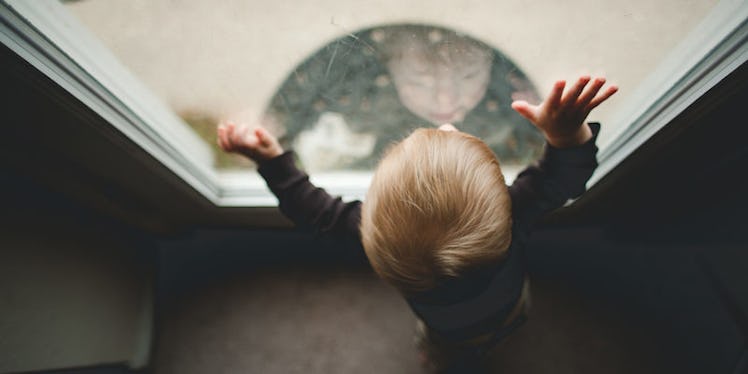
6 Ways Growing Up With An Alcoholic Parent Shapes You In Adulthood
Growing up as a child of an alcoholic parent has influenced me in more ways than I care to admit. Back in college, when I first began delving into the comprehensive research available on this topic, I was amazed at how deeply it resonated.
Alcoholism is undeniably one of the most prevalent forms of addiction out there, and given booze’s universal accessibility, there’s an excellent chance it will remain a frontrunner for years to come. While it is not my intention to misallocate blame for personal problems of my own making, the scientifically backed findings are pretty astounding.
Alcohol alters our brain’s physiological functions, rearranging the natural balance of various neurotransmitters and chemical production, such as the pleasure-seeking dopamine. A genetic component has also been widely accepted, as it has been found that children of alcoholics are generally four times more likely to develop the addiction themselves.
It’s true we must factor in environmental conditions and acknowledge that individuals, as well as their unique upbringings, can fluctuate extensively. On the flip side, consistent characteristics have been identified, and they continue to make their mark on empirical studies.
The contradictory nature of those who were raised in an alcohol-induced home tends to trickle into adulthood, evading those closest to us. These destructive proclivities ensured survival, but at a price. The scar tissue created ultimately helped us to heal.
Over time, however, it impedes basic functionality, causing us to once again look outside of ourselves for a quick fix. Here are six effects of growing up as the child of an alcoholic:
1. We’re more likely to end up with another alcoholic.
In addition to an increased susceptibility for the disease themselves, children who are exposed to alcoholism at a young age are also at a higher risk for committing their lives to a person who suffers from it as well. Reasoning behind this is vague, but I'd venture to guess it goes hand in hand with sufferers of abuse who gravitate toward toxic relationships. Familiarity can periodically provide people with an intrinsic sense of comfort, no matter how sick.
2. Denial and emotional suppression become key elements of our development.
Being a kid is about fitting in. No one wants to be different, but we often are. Growing up, I knew it wasn't normal when my dad would disappear for all hours of the night, or when I would occasionally find him passed out on the bathroom floor.
Eventually, I learned to decipher the difference between the dopey, fun (intoxicated) version of him from the irritable and morose sober version. By the time I became old enough to realize, I morphed into a full-fledged enabler.
Excuses flew like wildfire: the divorce was so devastating for him, work added even more stress and he was quitting, he promised! The alcohol was a convenient escape from his discontented reality.
3. Because our past was slightly poisonous, we have difficulty disassociating it with the present.
To this day, I have tremendous difficulty keeping my cool when an immediate family member drinks too much. My anxiety spikes, and suddenly, the emotional tidal waves of my past washes over the present moment like a tsunami. I revert to the truly helpless place I resided in as a child, and I end up projecting previous hurts from another relationship entirely onto loved ones who don't deserve it.
4. We’re self-critical control freaks.
A vital aspect of dealing with alcoholic parents throughout childhood means becoming a highly adaptable shock-absorber, who believes that his or her own individual inadequacies have launched a colossal earthquake at home.
As a result, we shudder at the thought of relinquishing the pseudo-control we have convinced ourselves that we’ve established. The reality (and twisted irony) of the fact is that the chaotic atmosphere we have grown so accustomed to has very little to do with us.
We misinterpret the fundamental principle of cause and effect. For we have never been — and never will be — the cause of our less than ideal situations.
5. A deep-rooted aversion to intimacy becomes palpable over time.
Intimacy proves challenging, to say the least. Children of alcoholics are programmed to brace themselves for impact, so to speak.
Our fight-or-flight modes are always engaged, and we struggle with trusting others to not inevitably disappoint us. Intimate relationships tend to be filled with dramatic overreactions, disconnects in communication and resentment over feeling misunderstood.
6. We succumb to impulse, and we often revert to self-loathing due to our poor choices.
Virtually every stupid decision I’ve made in my life has been made in haste and/or under the influence of alcohol. Again, I don’t stand here making excuses or negating accountability, but it’s impossible not to correlate my impulsive behavior (usually accompanied by massive alcohol consumption) with grave lapses in judgment and a tragic, yet inevitable plunge in my self-esteem.
While these masochist tendencies are torturous, they momentarily put life back into perspective. Suddenly I remember who I am, what I stand for and what makes me so much different from the weak, selfish individual who raised me.
I remember the girl who spent her Saturday nights pouring vodka down the drain as opposed to her throat. It's then that I realize the alcohol is designed to make me forget. But, it is designed to make us wonder: Are we really all that different, after all?